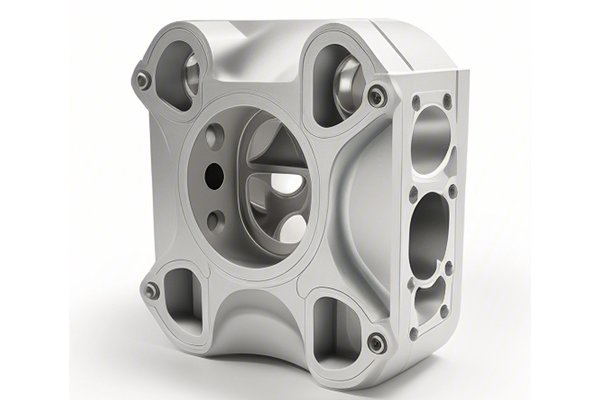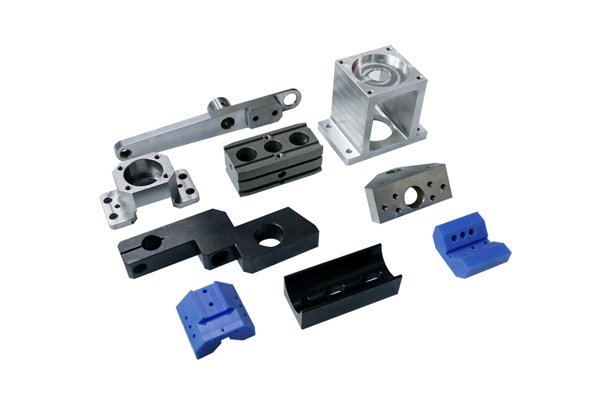Have you ever wondered how intricate components in vehicles, aerospace equipment, and electronics are made? Did you know that CNC machining accounts for approximately 30% of the entire manufacturing market, valued at over $90 billion? CNC (Computer Numerical Control) machining allows for unprecedented accuracy and repeatability in producing various parts. One of the highly sought-after processes in this realm is custom CNC brass machining, renowned for its versatility and remarkable properties. In this blog, we will explore the comprehensive benefits of custom CNC brass machining and its applications across various industries.
Understanding CNC Brass Machining
CNC machining is a subtractive manufacturing process that utilizes computerized controls to operate machine tools. CNC brass machining refers specifically to the precision machining of brass components using these advanced techniques. Brass is an alloy primarily composed of copper and zinc, offering excellent machinability, corrosion resistance, and aesthetic appeal, which makes it a popular choice for many applications.
Why Choose Brass?
Brass components can be found in tools, plumbing fixtures, electrical connectors, and decorative items. The choice of brass often stems from its favorable properties:
Benefits of Custom CNC Brass Machining
Let’s delve into the detailed benefits of utilizing custom CNC brass machining in various sectors.
One of the most significant advantages of CNC machining is its ability to produce parts with extreme precision. Traditional manufacturing techniques may involve human error and variability in results. CNC machining, on the other hand, relies on computer programming, ensuring that each piece is produced to the exact specifications provided. This level of accuracy is crucial in industries where performance, safety, and fitment are non-negotiable.
Custom CNC brass machining enables manufacturers to create components with complex geometries that would be challenging or impossible to achieve using manual methods. Intricate designs with tight tolerances can be easily programmed into CNC machines, allowing for the production of complex parts such as intricate valve bodies or ornamental features.
CNC machined brass parts can be produced on a larger scale with a shorter turnaround time compared to conventional machining techniques. Once the CNC machine is programmed, it can run unattended, significantly reducing labor costs and allowing for continuous production. This quality translates into lower lead times for customers, which can be a significant advantage in fast-paced industries.
Brass is utilized across a range of applications, from automotive to aerospace to consumer goods. Custom CNC machining provides the flexibility to create a diverse array of parts tailored to specific needs, whether for a high-volume industrial application or a low-volume prototype.
Consistency in production is vital in maintaining quality standards, particularly in manufacturing sectors. Custom CNC machining guarantees that every piece produced is identical to the last, ensuring uniformity across all batches. This is especially crucial for products that require interchanging parts, such as assemblies, where component fit must be perfect.
While the initial setup cost of CNC machining may be higher than traditional methods, the long-term savings can be significant. The efficiency and precision associated with CNC processes reduce material waste, decrease labor costs, and shorten time-to-market. This can ultimately improve profit margins when scaled appropriately.
CNC brass machining not only optimizes the use of brass’s inherent qualities but also can enhance the performance characteristics of the components. For instance, components can be deburred, polished, or coated during manufacturing to add strength and durability, ensuring they withstand more demanding conditions.
Industries That Benefit from Custom CNC Brass Machining
Automotive
The automotive industry often requires complex brass components for applications such as connectors, fittings, and valves. The ability to machine intricate shapes with high tolerances ensures the reliability and efficiency of automotive systems.
Aerospace
In aerospace manufacturing, components require not only precision but also lightweight materials. Brass’s low density and high strength make it suitable for various applications, including hardware and fittings used in aircraft.
Electronics
Brass is often used in electronic connectors and components due to its excellent conductivity. Custom CNC machining allows for the production of parts that precisely fit within electronic devices while meeting stringent electrical specifications.
Plumbing
Custom CNC machined brass fittings and fixtures are integral to plumbing systems, as brass offers durability and corrosion resistance. The precision of CNC machining ensures a perfect fit between components, eliminating leaks and maintaining system integrity.

Defense
Manufacturers in the defense sector also leverage CNC brass machining for the creation of specialized components that require high strength, reliability, and precision. These could range from connectors to precision parts utilized in various military applications.
The CNC Brass Machining Process
To better understand how custom CNC brass machining works, let’s break down the process step by step.
Step 1: Design and Prototyping
The first step in custom CNC brass machining involves designing the part using CAD (Computer-Aided Design) software. Engineers and designers work together to create a model that adheres to specifications. Prototyping can also take place at this stage to test the design before moving into production.
Step 2: Tool Selection and Setup
Once to the design stage is complete, the next step involves selecting the appropriate tools required for machining the part. Various cutting tools are utilized within CNC machines, depending on the complexity and requirements of the part. Additionally, the CNC machine is set up, which includes installing the chosen tools and configuring the machine parameters.
Step 3: CNC Programming
A crucial aspect of CNC machining is writing the program that will guide the machine. This program includes codes (usually written in G-code) that determine the path, speed, and operation of the tools. This step is essential for ensuring accuracy and efficiency during production.
Step 4: Machining
Once the programming is complete, the CNC machine begins the machining process. The tool cuts away material from the brass workpiece to create the desired shape. During this phase, the machine can perform multiple operations such as drilling, turning, milling, and grinding, depending on the part’s requirements.
Step 5: Quality Control
During and after machining, quality control checks are conducted to ensure that the parts meet all specification requirements. Various methods, including visual inspections and precise measuring tools, are used to verify dimensions and tolerances. Any deviations from the specifications can be addressed promptly to ensure consistency in production quality.
Step 6: Finishing Operations
Finishing operations such as polishing, coating, or plating may be applied based on the application requirements. These steps further enhance the appearance, durability, and performance of the brass parts.
Step 7: Delivery
Once the machining and finishing processes are complete, the parts are packaged and shipped to clients. Timely delivery is crucial in maintaining customer satisfaction and ensuring ongoing partnerships.
Challenges in Custom CNC Brass Machining
While there are many benefits to custom CNC brass machining, it is important to consider the challenges that manufacturers may face.
The initial investment in CNC machinery can be substantial, and while the long-term benefits often justify this expense, smaller companies or startups may find it challenging to cover these upfront costs.
CNC machining requires a skilled workforce capable of programming and operating complex machines. Finding trained professionals with the necessary skills can be challenging, especially as the industry evolves with new technologies.
While brass is versatile, it may not always be the best choice for certain applications requiring specific properties. For heavier load-bearing applications, alternative materials may provide better strength or durability.
When dealing with custom orders, especially in low volumes, lead times may increase as manual programming and setup are required. It is essential to manage customer expectations regarding delivery timelines.
Custom CNC brass machining is a transformative process that has revolutionized the manufacturing industry by providing precision, versatility, and efficiency. From automotive to aerospace, the applications are vast and continuously expanding. By leveraging the benefits of CNC machining, companies can produce high-quality, intricate components that stand the test of time.
Understanding the detailed process and improvements this technology can offer is essential for manufacturers looking to remain competitive in an evolving marketplace. The quality, consistency, and capabilities of custom CNC brass machining make it an imperative consideration for businesses across various sectors.
As we have explored throughout this blog, the combination of technology and material properties makes custom CNC brass machining not just a choice but a strategic advantage. In a world where precision and durability are paramount, the importance of understanding and investing in this technology cannot be understated.
By recognizing the immense potential that custom CNC brass machining holds and applying the insights gleaned from this blog, readers are encouraged to explore how they can enhance their operations and meet the demands of their industries. Your future projects deserve the precision and excellence that only custom CNC machining can deliver, paving the way for innovation and growth.






